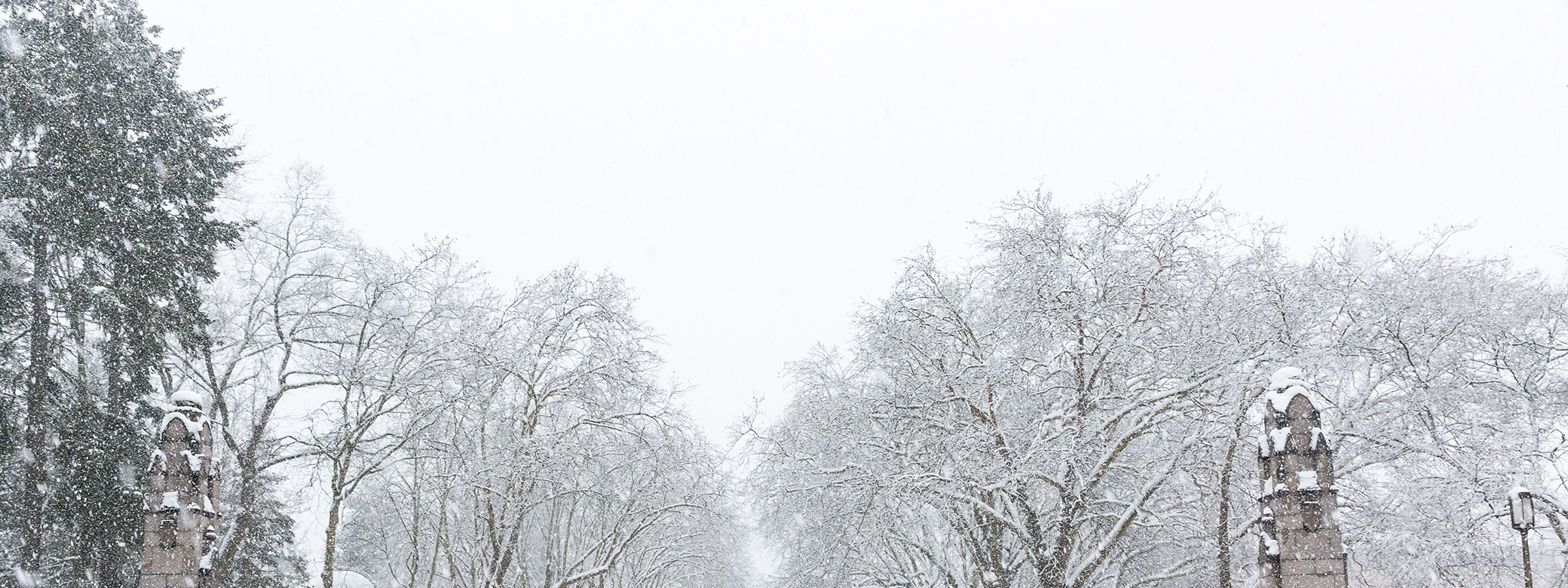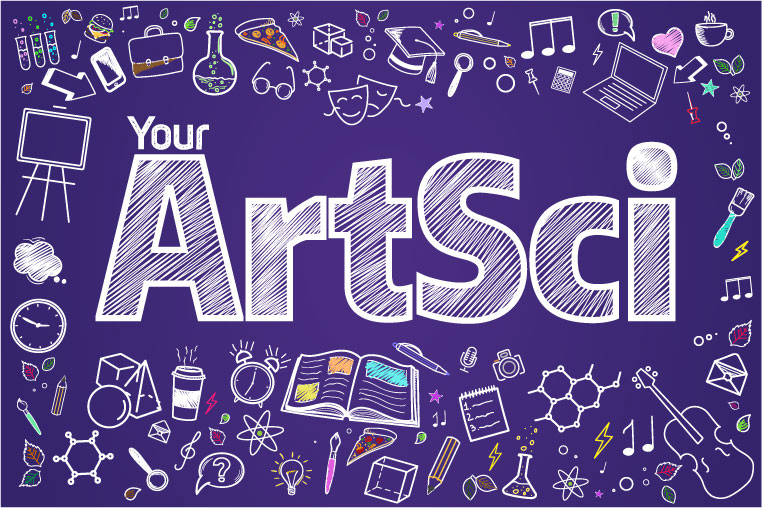
It's time to think about winter quarter course registration! Check out these cool Arts & Sciences courses to be offered this winter.
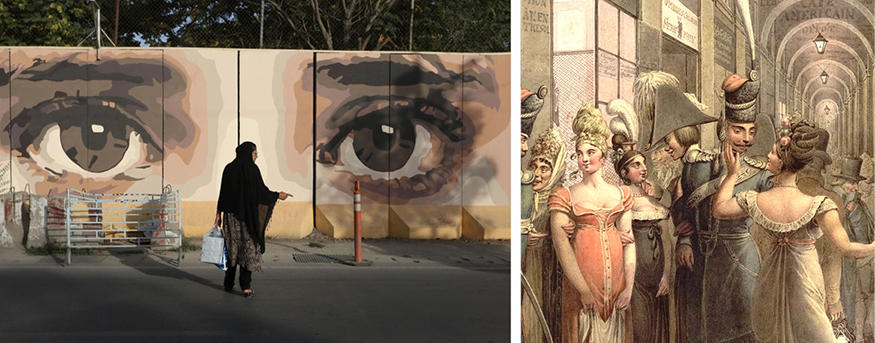
Exploring the World
NEAR E 243 A / CHID 250 D: Afghanistan Beyond the Headlines
(listed as “Iranian Culture and Civilization”)
Beyond its importance to US foreign policy, Afghanistan has a multifaceted history; dynamic music, art, and fiction; amazing cuisine; a growing diaspora in North America, including the Pacific Northwest; and linguistic and cultural diversity. In this course, you will develop nuanced and grounded perspectives on a country that defies easy stereotypes.
Aria Fani, Middle Eastern Languages & Cultures
5 credits, A&H, SSc
HSTAFM 253: African History in Real Time
Through collaborative research projects and presentations, this course will place today’s African news headlines in historical perspective, connecting past events to current struggles. Power struggles over colonialism, race, ethnicity, religion, gender, class, and sexuality will be highlighted.
Lynn Thomas, History
5 credits, DIV, SSc, W
FRENCH 223 / HSTEU 290: Sex, Commerce, and the Making of Modern Paris
Explore how Paris became the city of love, how sexual commerce shaped the identity of the city, how the commercial spaces of the city shaped sexual identities, and how discourses about sexuality contributed to the legitimation of capitalism. Topics include the construction of gender difference, the emergence of mass media, and the commercial origins of queer identities. Taught in English.
Hannah Frydman, French & Italian Studies
5 credits, DIV, SSc

Technology & Society
JSIS B 100: International Cybercrime
(listed as “Issues in International Studies”)
Cybersecurity and cybercrime are pressing contemporary policy issues. Learn about hackers, hacktivists, organized crime, state-sponsored cybercrime, criminal networks, the impact of cybercrime on geopolitics, and related topics, and build your professional skills through practical application of course content.
Jessica Beyer, International Studies
5 credits, SSc
GEOG 258: Digital Geographies
Explore the use and societal impacts of contemporary digital spatial technologies, including internet mapping, handheld geographic technologies, location-based services, spatial applications of social media, the geoweb, and traditional GIS. Students will develop hands-on experience using online digital spatial tools for geovisual representation, as well as skills for evaluation and critique of digital data and maps.
Sam Kay, Geography
5 credits, SSc
POL S 362A / J SIS A 362A: Data, Technology, and Development in Africa
By the 15th century, Africa was as relatively wealthy and politically centralized as Europe, but by the 21st century that had changed dramatically. Why? Using methods and new data sources from data science, ethnography, economic history, quantitative social science, and “technology for development,” we will investigate African development and contribute new knowledge to many questions that have thus far bedeviled previous scholarship.
James Long, Political Science
5 credits, SSc
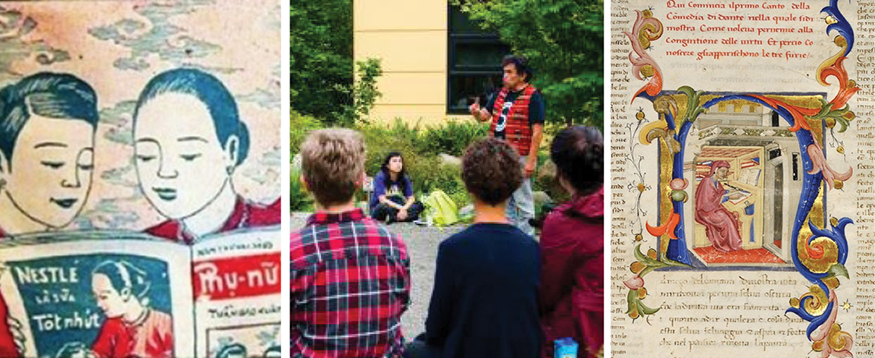
The Stories We Tell
SCAND 230 / C LIT 230: Folklore Studies
This course focuses on analyzing folktales, legends, jokes, songs, proverbs, customs, and other forms of traditional culture together with the living people and communities who perform and adapt them. Students will learn about the tools and methods of folklorists, including fieldwork, observation, ethnography, comparative analysis, and interpretation.
Guntis Smidchens, Scandinavian Studies
5 credits, A&H, SSC
VIET 486: 20th Century Vietnamese Literature
Explore Vietnamese poetry, short stories, films, and novels from Vietnam’s late colonial period (1920s-1930s) to its post-colonial and civil war period (1950s-1970s), including the rise of women writers in Vietnam during the last two decades of the twentieth century. Taught in English.
Bich-Ngoc Turner, Asian Languages & Literature
5 credits, A&H
AIS 305: American Indian and Indigenous Storytelling
Explore American Indian and Indigenous mythologies and storytelling with a passionate and experienced local storyteller. There will be particular emphasis on the Coast Salish tribal groups of western Washington, where the University of Washington is situated. Through hearing, reading, interpreting, memorizing, and sharing traditional stories, myths, and legends, students learn how stories impart concepts, values, morals, science, history, beliefs, and philosophies.
Roger Fernandes, American Indian Studies
5 credits, A&H, DIV
TXTDS 401 / TXTDS 501 / HONORS 211 / FRENCH 474: Reading and Writing: Manuscripts in the Middle Ages
Examine the rising importance of the written word in the late medieval period, particularly the impact of cultures of reading in late medieval France and Italy. Learn about evolving practices of reading, writing, and transmitting knowledge — including the impacts of digitization today — and the impact of those practices on literacy. Explore centuries-old books during visits to UW Libraries’ Special Collections. Taught in English.
Beatrice Arduini, French & Italian Studies
5 credits, A&H, SSc
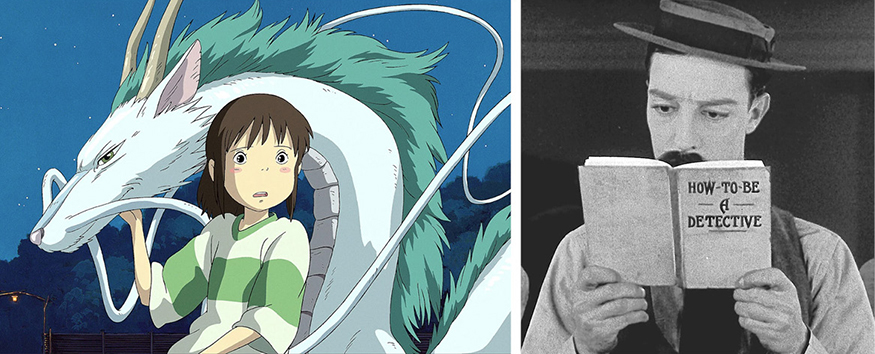
Investigating through Film
CMS 270: Crime Scenes: Investigating the Cinema
(listed as “Perspectives on Film”)
How many bodies do you think we’ll find? Acts of violence and mysterious motives fascinate movie audiences. This course, organized like an investigation, provides a set of tools for investigating the cinema. Rather than focusing on a particular genre, “crime scenes” are explored through diverse genres, cultures, and historical contexts.
Eric Ames, Cinema & Media Studies
5 credits, A&H
CHSTU332 / C LIT357: Chicano Film and Narrative
This course provides a historical overview of the evolution of Chicano culture through film. Students will critically examine the portrayal and self-portrayal of Chicanos in film and selected works of narrative. Taught in English.
Lauro Flores, American Ethnic Studies
5 credits, A&H, SSc, DIV
JAPAN 360 A: Anime Feature Films
(listed as "Topics in Japanese Culture")
Come learn about anime — Japanese animation — in this survey course that covers everything from "Studio Ghibli" to "Madhouse" and the film "Your Name."
Benjamin DeTora, Asian Languages & Literature
5 credits, A&H
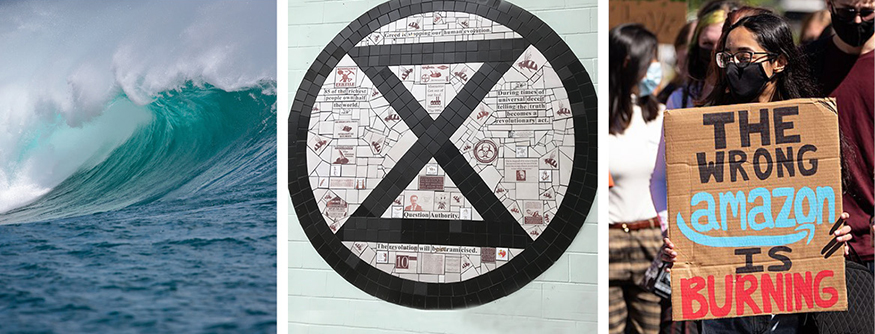
The Environment: Past, Present, Future
JSIS B 100: Environmental Justice
(listed as “Issues in International Studies”)
What are the processes driving the uneven effects of ecological catastrophe? This course surveys environmental justice frameworks aiming to resolve and intervene in these unequal conditions. Students will investigate a range of proposed solutions to the current state of environmental injustice, including iterations of the Green New Deal, food sovereignty movements, climate activism, anti-capitalist movements, and struggles for self-determination.
Danya Al-Saleh, International Studies
5 credits, SSc
CHID 250B: Histories of Climate Disaster: Indian Ocean Perspectives
(listed as “Special Topics”)
This course focuses on the intertwined relationship between human societies and the waters that connect us. Through novels and films, students will explore ideas of power, race, and violence within environmental crises discourse across the Indian Ocean world, and will consider how alterations to the environment — agricultural development and resource extraction — continue to produce economic and health disparities in postcolonial imaginations of the nation and regional identity.
Katia Chaterji, History
5 credits, SSc
GERMAN 285 / ENGL 265A / ENVIR 495: Cultures of Extinction
(listed as “Representation and Diversity”)
Through a multi-disciplinary approach, we will look at how current threats to biodiversity are inseparable from threats to cultural diversity and how the history and concept of extinction is implicated in histories of colonialism and imperialism. Resisting the apocalyptic appeal of art that depicts terminal extinction scenarios, course readings and assignments are oriented toward imagining and generating livable futures in the wake of biodiversity loss.
Jason Groves, German Studies
5 credits, SSc, DIV
HSTCMP 221: Global Environmental History, Feast and Famine
This course examines how consumption in societies such as China, India, Japan, Africa, Europe, and the Americas developed from 1500 to the present. Learn about broad patterns of global history and how they fit into debates about environmental history. Where have the environmental effects been the worst? How have things changed over time? Discover how changes in our environment have been ongoing for hundreds of years.
Purnima Dhavan, History
5 credits, DIV, SSc, W
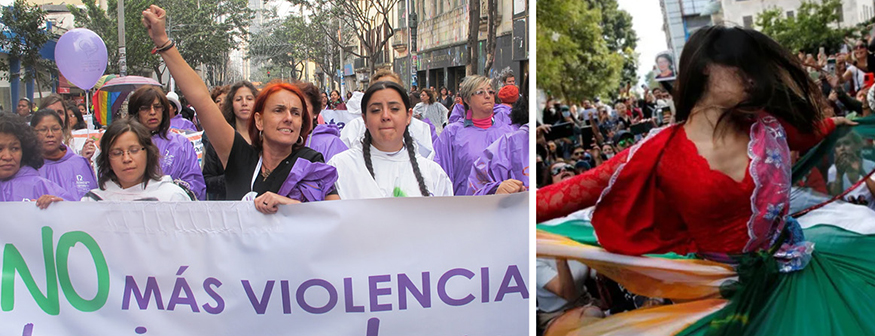
Race, Gender & Sexuality
DANCE 340: Dance, Gender, and Sexuality
Explore how gender and sexuality are constructed, challenged, and reimagined through dance practice, with an instructor who specializes in contemporary Egyptian raqs sharqi (“belly dance”) and other Middle Eastern, North African, and Turkish (MENAT) dance genres.
Christine Sahin, Dance
3 credits, A&H, SSc, DIV
GWSS 315: Gender, Race, Sexuality, and Medicine: From the Plantation to the Clinic
Explore the intersection of gender, race, and medicine, including scientific constructions of race, gender, and sexuality. Examine the role medicine has played in social orientations to race, gender, and sexuality, as well as the legacy of slavery. This course touches on issues that continue to be relevant, including issues surrounding reproductive justice and inequalities in healthcare during the pandemic.
Bettina Judd, Gender, Women & Sexuality Studies
5 credits, SSc, DIV
ITAL 357: Race in Italy: Inventing Others in the Early Modern World
Interrogate how ideas of racial and other kinds of difference evolved in Italy — and elsewhere in Europe — from around 1300 to 1700. How and why were certain bodies described as different? What do those descriptions tell us about the authors’ various agendas? How and why did the category "race" increasingly refer to skin color rather than religion, clan, or place of birth? Learn about changing ideas about human bodies, race, gender, and geography. Taught in English.
Susan Gaylard, French & Italian Studies
5 credits, A&H, DIV
GWSS 390/ CHSTU 498: Chicana/Latina Feminisms
(listed as “Intermediate Topics in Gender, Women, and Sexuality Studies”)
Through writings, film, drama, art, and activism, this course explores the resilience and agency of Chicana/xs and Latina/xs in the U.S., and the ways feminism is utilized to combat multiple levels of oppression. The class will engage in testimonio production as a decolonial research method, foregrounding the narratives and experiences of Chicanas/xs and Latina/xs in the U.S.
Elizabeth Ramírez Arreola, Gender, Women & Sexuality Studies
5 credits, SSc, DIV
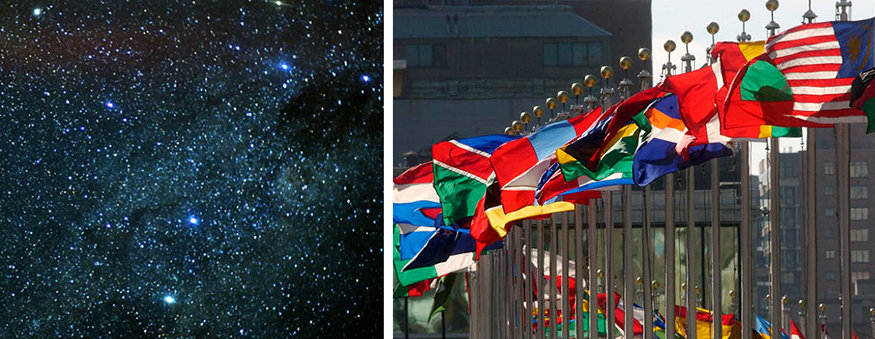
Other Cool Courses
ASTR 109: Measuring the Universe
How have we measured the distance to the Sun, the mass of the Earth, and the age of the Universe? How do we know that everyday matter is composed of atoms? This course provides a historical introduction to the methods that different societies have devised to solve such quandaries — and in the process, constrained nature's laws and shaped the physical sciences into their modern form.
Matt McQuinn, Astronomy
3 credits, SSc, NSc
GEOG 276: Political Geography
Examine the geography of politics and the politics of geography at a variety of spatial scales and in different global locations, covering such topics as geographies of the state and state power; geopolitics and globalization; national and local politics; and other politics of culture, health, nature, and the body.
Michael Brown, Geography
5 credits, SSc
RELIG 201: Introduction to World Religions: Western Traditions
Explore the history, beliefs, and practices of three major Western religious traditions: Judaism, Christianity, and Islam. As you learn about the history, beliefs, practices, and current challenges of Jewish, Christian, and Muslim faith traditions, you will also gain insights into how modern Western understandings of religion have been shaped by the economic, political, cultural, technological, and colonial aspects of modernity.
Philip Tite, International Studies
5 credits, SSc
More Stories
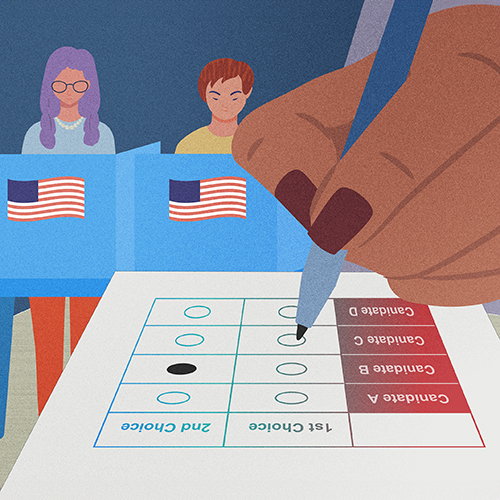
Democracy by the Numbers
Mathematics and Democracy, an undergraduate mathematics course, explores the role of math in many aspects of democracy, from elections to proportional representation.
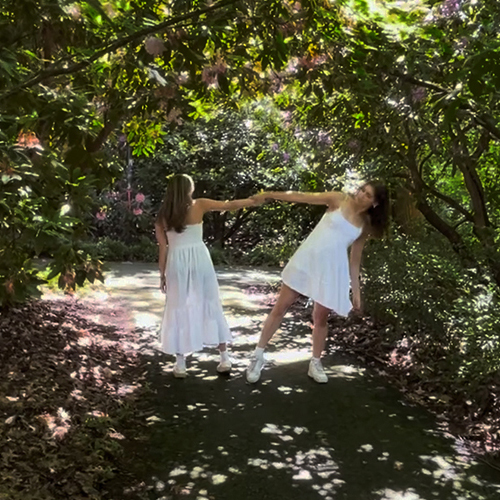
Dancing Across Campus
For the dance course "Activating Space," students danced in public spaces across the University of Washington's Seattle campus this spring.
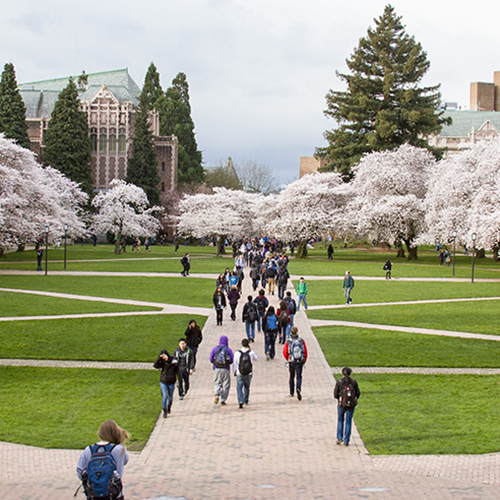
Four Students Shine as 2024 Dean's Medalists
Meet the four new graduates honored as College of Arts & Sciences Dean's Medalists for 2024.
